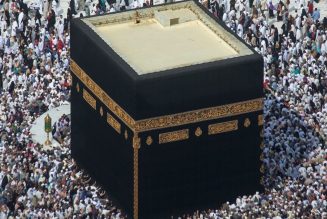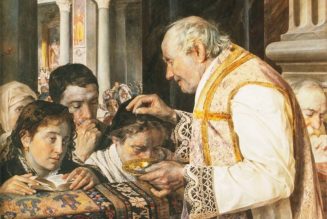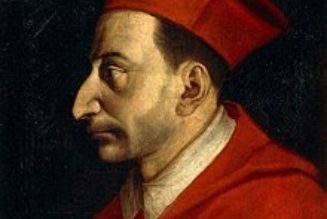By DONAL ANTHONY FOLEY
It is now more than seventy years since the famous World War II evacuation from Dunkirk (Dunkerque) in northern France, which took place between May 26 and June 4, 1940. This great event, which enabled the bulk of the British Army to escape from Nazi-dominated Europe, was a great military and naval feat, but at the same time it has a lesser known spiritual dimension.
The British Expeditionary Force had been sent to help with the defense of France after the invasion of Poland in September 1939. But the blitzkrieg (“lightning war”) tactics of the German army, after they invaded Belgium, Holland, and France early in May 1940, left the Allies, numbering over 300,000 men, facing a catastrophic defeat.
By May 21, the British Force, along with some Belgian and French allies, was trapped in the vicinity of Dunkirk facing destruction or capture. The decision was taken to attempt an evacuation — known as Operation Dynamo — from the port of Dunkirk and across the Straits of Dover to England. The situation seemed hopeless, but on Thursday May 23, the German commander, Von Rundstedt, issued an order for his forces to halt. This was backed up by Hitler, and the job of finishing off the Allied forces was left to the Luftwaffe, the Nazi air force.
That same day, Winston Churchill, the British prime minister, met with the British monarch, King George VI, and told him about the gravity of the situation. The king’s response was to request that the coming Sunday should be kept as a National Day of Prayer.
There is newsreel footage of the King’s speech on this occasion, in which he spoke of it being a “fateful hour” during which the Nation should turn toward God the Most High and with one heart and soul, humbly but confidently commit its cause to the Divine Power.
An urgent call for vessels to cross the channel and rescue the soldiers was also made that day, and this resulted in hundreds of boats, of all descriptions, including transports, pleasure boats, and fishing craft, assembling at English Channel ports. The smaller boats were needed because British Navy ships could not safely approach the beaches through shallow water.
About 200,000 of the troops were taken off a long breakwater, which jutted out 1,400 yards into the sea, but the remaining Allied troops had to be taken off the beaches, a dangerous and time-consuming business, although the RAF did provide air cover and was able to keep attacking German planes at bay.
On that Sunday, there was a huge response to the King’s call for prayer — this is evident from photographs taken at the time and newsreel footage — but even before that Sunday, there were mysterious aspects to this story, including the strange decision to halt the German advance when victory for them seemed inevitable. It is thought that Hitler agreed to this in the expectation that Britain would be more willing to come to terms with Germany if it was not forced to surrender its army in a humiliating manner.
There are also reports of bad weather hampering the efforts of the Luftwaffe in bombing the Allied positions, and of the English Channel being unusually calm at the time, which greatly helped the evacuation efforts.
Keep Sunday Holy
With regard to the call for Sunday public prayer, it is fascinating to see what the saintly French priest, Père Jean-Edouard Lamy (1855-1931), said on two occasions in the 1920s in relation to the importance of keeping Sunday holy.
His bishop described him as “another Curé of Ars,” and he apparently experienced visions of Christ, our Lady, and other holy figures, while also founding a religious congregation, the Servants of Jesus and Mary.
On one occasion in the 1920s he said, speaking of the future, that “England will not be invaded. Keeping the Sunday holy is what will save England.” Another time, he spoke of the Sunday rest as follows: “Not to keep that is to refuse God worship that we owe Him before any other thing. Keeping the Sunday holy is what will save England.”
These remarks are a reminder of what our Lady said to the children at La Salette in south-eastern France in September 1846. She complained that she had to pray ceaselessly to her Son for the people but they still worked on Sundays and blasphemed. She also spoke of coming punishments for these sins, including crop blights and famine, which did in fact take place.
Coming back to the events at Dunkirk, by the time the order was given for a renewed German ground attack on the Allied forces, 338,000 soldiers had been taken from the beaches around Dunkirk and transported back to Britain, although most of their military equipment had to be left behind.
This deliverance was certainly regarded by many as miraculous at the time, and the implications were huge. If the British Army had been destroyed in France, then any defense of Britain from invasion would have been very difficult. And indeed, later in the summer, the Battle of Britain — the air war during which the RAF fought off attacks from the Luftwaffe, which took place between July 10 and the end of October 1940 — showed how close the country came to being invaded.
The other major consideration is that if the United States had had to effectively fight alone against the Axis powers, then victory would have been far more difficult. Hitler’s ultimate aim was world domination, and his plan involved attaining mastery in Europe before attacking and destroying Russia, with the intention of creating “Lebensraum” — living space — for a vast German Empire covering the whole Eurasian continent, with all its abundant resources.
Once that was achieved, he planned, with the assistance of Japan, to take on and defeat America, thus assuming control of the whole world. This was not such an impossible plan as might be imagined, and certainly without England as the base from which to launch the D-Day landings, an invasion of Europe in 1944 would have been far more difficult.
As it was, on June 4, Churchill was able to make his famous “We shall fight on the beaches” speech in which he described Dunkirk as a “miracle of deliverance.”
Remember Dunkirk
The lesson for our own times is undoubtedly that public prayer is assuredly of great efficacy, and likewise, keeping the Sabbath holy is of the utmost importance. Tragically, Western society has largely forgotten or ignored these facts, and this no doubt is one of the reasons why we are currently experiencing so many problems.
This story also shows just how much the world has changed over the last seventy years. It is hard to imagine any modern Western leader, or monarch even, making such a call to prayer, and yet the need has never been greater.
We can at least remember the anniversary of the Dunkirk evacuation, and hope and pray that the once-Christian nations of the West, and indeed the whole world, acknowledge the importance of public prayer and also the divine sovereignty, including the Commandment to keep Sunday as a holy day dedicated to the worship of God.
(Donal Anthony Foley is the author of a number of books on Marian Apparitions, and maintains a related website at www.theotokos.org.uk. He has also written two time-travel/adventure books for young people, and the third in the series is due to be published next year — details can be seen at: http://glaston-chronicles.co.uk)
Join Our Telegram Group : Salvation & Prosperity









